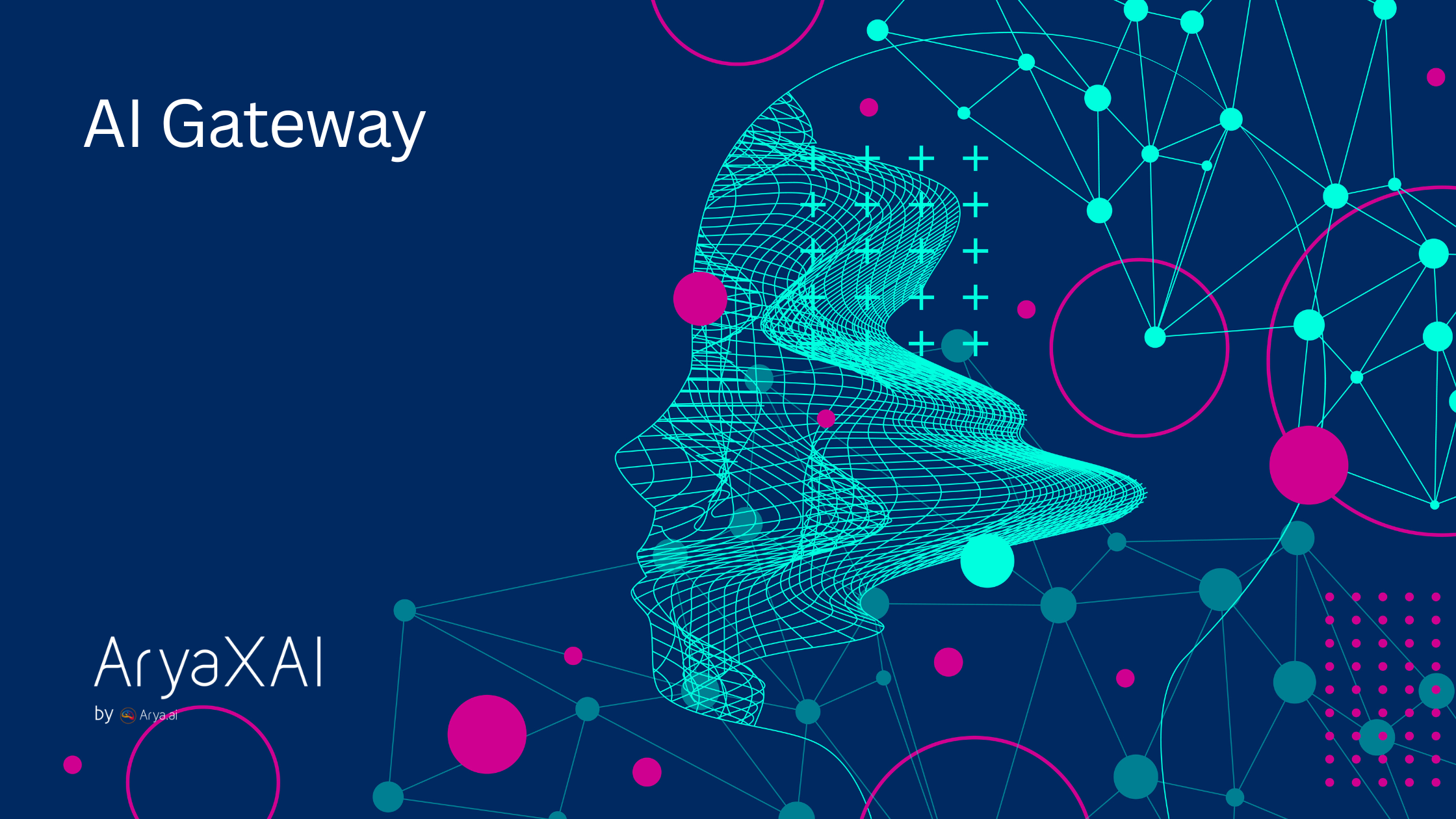The Rise of Agentic AI: Transforming Business and Automation
7 minutes
February 27, 2025

Artificial intelligence has been changing rapidly. We see new breakthroughs, innovations, and applications emerge daily, including advanced AI solutions that automate processes, analyze data, and personalize experiences. Among these trends, ‘Agentic AI’ and ‘AI agents’ are the most common terms being thrown around lately. While these are often used interchangeably, they are distinct concepts that are reshaping how enterprises use AI for business automation and decision-making. An agentic AI system serves as the overarching framework that manages autonomous decision-making and coordination among multiple AI agents, enabling complex, goal-oriented tasks with minimal human intervention.
Let’s break down these concepts, see their differences, and explore applications, the business value they deliver to organizations, and the future of Agentic AI.
What is Agentic AI?
Agentic AI is a revolutionary paradigm that differs from traditional AI. While the latter works according to predefined instructions, Agentic AI is about autonomy. It is like an intelligent virtual assistant, powered by intelligent agents capable of understanding and responding to a wide range of objectives. By leveraging natural language processing, Agentic AI can understand objectives, develop strategies, and act autonomously based on processed data to execute actions without human intervention. This next-generation AI can evaluate situations, make decisions, and learn autonomously without needing constant directions. It is a game-changer for enterprises and automation.
Large language models and language models are foundational technologies that enable Agentic AI to interpret natural language and reason autonomously.
How Agentic AI Works to Perform Tasks
Agentic AI can analyze data, adapt to new information, and execute complex tasks with minimal human intervention. AI agents work by continuously observing their environment, planning actions, and acting autonomously in an observe-plan-act cycle. Agentic AI works in conjunction with multiple advanced technologies and methodologies:
- Independent Reasoning: Agentic AI evaluates complex problems, assesses multiple potential solutions, and autonomously selects the most optimal course of action, minimizing human intervention wherever appropriate.
- Iterative Planning: Based on real-time feedback and data analysis, the strategy is dynamically refined for the changed environment.
- Analyzing Data: Agentic AI process data from various sources and identify patterns to inform decision-making and generate insights.
- Multi-Step Execution: Unlike traditional AI, which follows predefined workflows, Agentic AI can handle complex tasks by working through intricate processes in an efficient multi-step sequence while dynamically adapting and reconfiguring its execution strategy.
- Learning from Experience: Using techniques like supervised learning, unsupervised learning, and reinforcement learning, Agentic AI learns to make better decisions over time by continuously analyzing past interactions, adjusting its models, refining its strategies, and as AI agents gather data from their environment to improve performance.
Agentic AI often integrates with external tools and external systems to enhance its capabilities and access additional data sources.
AI Agents vs. Agentic AI: What's the Difference?
“AI agents” and “Agentic AI” differ in key ways that define their capabilities and applications:
- AI Agents: These refer to bots meant to automate particular functions of predetermined tasks. Support chatbots, Siri and Alexa virtual assistants are examples; these agents strictly follow predetermined instructions and are in no way free-thinking or deciding independently. Typically, AI agents are designed to perform specific tasks and well defined tasks within a narrow scope.
- Agentic AI: These systems can autonomously learn, adapt, and cooperate with other agents or human operators. Unlike traditional AI agents, they are equipped with autonomous reasoning capabilities. They can perform tasks, complete tasks, and are capable of performing tasks autonomously across complex, multi-step workflows that do not require human involvement while maintaining alignment with business or regulatory constraints.
Top Benefits of Agentic AI in Business Automation
Benefits of the incorporation of Agentic AI into business operations:
Agentic AI not only streamlines operations but also optimizes business processes and supports the development of new business models, enabling organizations to innovate and drive growth.
- Efficiency Improvement: By automating routine and complex activities, Agentic AI enables human resources to work on more high-value activities and increase overall productivity. It can automate complex workflows and manage complex workflows across departments, further enhancing efficiency.
- Reducing Cost: By automating the processes, Agentic AI helps reduce labor costs a great deal since most of the manual work would be reduced.
- Scalability: An organization’s various departments and functions can be scaled up with little to no added costs for business growth.
- Efficient Decision Making: Real-time, data-driven insights provided by Agentic AI allow leaders to make informed decisions quickly.
- Improved Customer Experience: Agentic AI helps ensure better customer experience through personalized interaction and predictive analytics, enhancing customer engagement through more tailored and proactive interactions.
Real-World Applications of Agentic AI Across Industries
Agentic AI is transforming multiple industries by enforcing autonomous decision-making, multi-step problem-solving, and continuous learning. Here are some of the key sectors leveraging its capabilities:
1. Customer Service
Agentic AI is beneficial for customer service as it efficiently handles customer inquiries and customer service inquiries around the clock, automates and resolves issues on the fly, and personalizes engagement by understanding customer needs. These systems are different from simple ai chatbots, which typically handle rule-based interactions, as agentic AI can manage complex, multi-step tasks with greater autonomy and adaptability. For example, AI-driven virtual agents can automatically handle support tickets, escalate critical issues, and even negotiate refunds or compensation without human interference. Agentic AI can also act as a personal assistant, guiding customers through their journey and offering tailored product recommendations. Additionally, autonomous systems in customer service can operate independently, understanding customer intent and emotion, predicting issues, and improving the overall customer experience without human intervention.
2. Healthcare
Agentic AI offers benefits to the healthcare industry by providing diagnoses, treatment plans, and research in the medical field. With such vast patient data analyzed, early diseases can be identified, and corresponding treatments may be suggested according to personalized insights. For instance, Insilico Medicine utilizes AI to identify therapeutic targets and design drug candidates autonomously, streamlining the drug discovery process. Another example is AlphaFold, developed by DeepMind, which is an AI system capable of predicting the 3D structures of proteins from their amino acid sequences with high accuracy.
3. Finance
The financial sector highly relies on Agentic AI, which is vital in fraud detection, risk evaluation, and algorithmic trading. Unlike traditional AI fraud detection systems that highlight anomalies, Agentic AI proactively adapts to new fraudulent patterns and autonomously takes actions to prevent fraudulent activities. It helps financial institutions execute split-second decisions that make all the difference between winning and losing in high-frequency trading. Examples include AI-powered hedge funds and autonomous wealth managers that adjust investment strategies in real-time with minimal human oversight.
4. Software Development
Agentic AI is revolutionizing software engineering by autonomously generating code, debugging, and performing quality assurance testing. Generative AI is used for content creation and code generation, enabling developers to accelerate their workflows. AI-powered tools like GitHub Copilot, OpenAI’s Codex, and Tabnine assist developers by suggesting optimized code snippets and refactoring inefficient code. More advanced Agentic AI systems can autonomously detect vulnerabilities, fix bugs, and even deploy updates, reducing development time and enhancing software reliability. Robotic process automation is also a complementary technology, automating repetitive tasks and integrating with generative AI to streamline software development processes.
5. Cybersecurity
As cyber threats become more sophisticated, Agentic AI is being rolled out to recognize, analyze, and neutralize security risks in real-time. Unlike traditional security systems that base their threat responses on predefined, static signatures, AI agents learn and adapt to new attack patterns that evolve over time and autonomously reinforce cybersecurity protocols. By autonomously analyzing security data, these agents can proactively predict and mitigate attacks in real-time, enhancing the organization’s cybersecurity resilience. Autonomous systems in cybersecurity can operate without human intervention, providing continuous protection and rapid response to emerging threats.
Agentic AI is utilized in various industries, and its applications are increasingly expanding into manufacturing, logistics, self-driving vehicles, and scientific research. In time, agentic AI will change how businesses work in every sector, doing increasingly complicated sequences of steps required by a business or end-user. Agentic AI excels in dynamic environments and complex and dynamic environments, adapting to unpredictable situations and learning in real time to deliver robust, flexible solutions.
The Role of Enterprise Data and Large Language Models in Agentic AI Optimization
Enterprises produce enormous structured and unstructured data daily—from customer interactions to financial transactions to security feeds. While traditional AI follows predefined patterns, Agentic AI thrives on this data, dynamically adapting and improving decision-making to power a wide range of AI applications that leverage enterprise data for natural language understanding, content creation, data analysis, and personalization.
- Automate Workflows: Analyzing operational data, Agentic AI can identify repetitive tasks and automate them, integrating with external systems to streamline operations, reduce manual intervention, and increase efficiency.
- Enhancing Decision Intelligence: It processes enormous datasets to furnish actionable insights in real-time and aid in more informed decision-making.
- Personalized Customer Support: With an understanding of customer data and behavior, Agentic AI can predict users’ needs in advance and offer proactive, hyper-personalized interactions and solutions, improving customer satisfaction.
- Improve Cybersecurity: Agentic AI can autonomously identify and counter threats by detecting patterns in the security data collected, thus increasing the organization’s security posture.
Potential Future Applications of Agentic AI
With the evolution of Agentic AI, its potential applications include automating business workflows to its use for real-time decision-making in mission-critical environments. Agentic AI will also enable new business models, driving innovation and creating additional revenue streams for organizations.
- Autonomous Business Operations: Agentic AI will revolutionize enterprise automation, from independent workflow management to the optimization of supply chains and complex decision-making. Building AI agents to automate tasks and support workflows will further enhance productivity and operational efficiency. Procurement bots powered by AI can evaluate vendor contracts, negotiate terms, and seal agreements all by themselves without any human intervention.
- Scientific Discovery & Research Acceleration: AI-powered agents can process vast scientific datasets, generate hypotheses, and conduct virtual experiments. For example, DeepMind’s AlphaFold has revolutionized protein structure prediction, significantly accelerating drug discovery. AI agents gather and analyze data in real-time to generate new scientific insights and adapt research strategies.
- Legal and Compliance Automation: Agentic AI can help the legal industry by automating contract analysis, case law research, and compliance monitoring. AI-powered legal assistants can review contracts for inconsistencies and flag them for regulatory non-compliance.
- Dynamic Personalization in Marketing: Unlike rule-based recommendation engines, Agentic AI can independently analyze consumer behavior in real-time and dynamically adjust marketing strategies, leveraging user input to tailor campaigns and enhance personalization.
- Smart Cities and Infrastructure Management: Agentic AI can revolutionize urban infrastructure by autonomously managing traffic, optimizing energy distribution, and making real-time decisions without human intervention. AI-powered traffic control systems in Singapore already use predictive models to optimize road signals and reduce congestion, but future Agentic AI could self-adapt by rerouting traffic dynamically.
- Fully Autonomous Agents in Financial Advisory: The financial sector is shifting toward AI-driven investment advisory, wherein the AI systems themselves analyze market trends, make trades, and then optimize the portfolios based on the real-time assessment of risks.
- Software Development: Agentic AI can streamline software development by automating coding and testing processes, simplifying workflows, and accelerating project delivery for developers.
Risks and Ethical Considerations of Agentic AI
While it has massive potential, Agentic AI also brings along technological, ethical, and regulatory challenges that need to be considered. The adoption of responsible AI practices is essential to ensure that these systems are deployed ethically, with proper attention to privacy, fairness, and accountability.
1. Security Threats: AI-related security threats are increasing at an unprecedented rate - Amazon has reported a surge in daily cyber threats, escalating from 100 million to nearly 1 billion within six months. This increase is partly attributed to the rise of AI-enhanced attack methods. Agentic AI poses a far greater risk due to its autonomy, especially in cases where such systems interact with sensitive enterprise data. A compromised AI agent might be manipulated to perform harmful actions, such as unauthorized access to confidential information or executing malicious commands.
2. Bias and Fairness: AI systems inherit biases from their training data, leading to unfair or discriminatory outcomes. Agentic AI, which has high autonomy, may reinforce biases in hiring, lending, healthcare, and law enforcement decisions. For instance, Amazon’s AI-powered hiring tool was found to favor male candidates over female applicants, raising concerns about algorithmic fairness. Organizations must implement explainable AI (XAI) models, continuous auditing, and diverse training datasets to mitigate bias.
3. Loss of Human Oversight: Increased human reliance on Agentic AI may lead to diminished oversight, creating an erosion of accountability. It creates scenarios where errors can propagate unchecked, resulting in system-wide failures with severe real-world consequences in healthcare, finance, or autonomous driving systems. For example, AI-driven trading systems making high-frequency decisions could trigger flash crashes or execute unauthorized transactions, causing massive financial losses. Agentic AI can automate tasks that were traditionally performed by human employees, allowing them to focus on more strategic or complex activities, but this shift also requires careful supervision to maintain accountability.
4. Regulatory Challenges: Governments and regulatory agencies are finding it difficult to cope with the speed of AI advancement. Countries have introduced frameworks like the EU AI Act and the White House’s AI Bill of Rights to ensure AI accountability, transparency, and ethical deployment. Many organizations struggle with compliance issues because regulations keep changing and are inconsistent across different countries in AI governance. Organizations that invest in Agentic AI need to establish AI ethics policies, compliance monitoring tools, and third-party audits to navigate these complexities.
5. Reliability and Trust Issues: The biggest challenge is to ensure that the decision-making processes of Agentic AI are transparent and explainable. Most advanced AI models, especially deep learning-based systems, operate as “black boxes,” making it difficult for users to understand how decisions are made. The use of machine learning has enabled the development of more advanced, adaptive agentic AI systems, but this also increases the complexity and opacity of their decision-making. This lack of transparency poses risks in sectors like healthcare, finance, and law.
6. AI Alignment and Control: Agentic AI must be aligned with human values and business objectives to prevent unwanted behaviors. For instance, the GPT models developed by OpenAI have manifested unexpected biases in hiring, loan approvals, and law enforcement applications. There is a great need for the development of alignment mechanisms for AI, RLHF, and ethics oversight committees.
7. Energy Consumption and Environmental Impact: The computational power necessary for advanced AI systems is quite an environmental challenge. AI models such as GPT-4 consume massive electricity, leading to high carbon footprints. Firms are already exploring green AI methods such as energy-efficient model training, quantum computing, and carbon offset initiatives to resolve sustainability issues.
Agentic AI holds tremendous potential, but robust security and fairness checks coupled with regulatory compliance will be critical in its coming to safe, ethical, and mainstream deployment in society.
Conclusion: The Future of Agentic AI
Agentic AI will revolutionize industries by automating complex decision-making, enhancing business efficiency, and unlocking new opportunities in research, finance, and smart infrastructure. However, its widespread adoption will depend on tackling key challenges around transparency, security, ethics, and regulation. Collaboration between governments, enterprises, and AI researchers will be key to ensuring that AI is responsibly developed and deployed as it continues to evolve.
SHARE THIS
Discover More Articles
Explore a curated collection of in-depth articles covering the latest advancements, insights, and trends in AI, MLOps, governance, and more. Stay informed with expert analyses, thought leadership, and actionable knowledge to drive innovation in your field.

Is Explainability critical for your AI solutions?
Schedule a demo with our team to understand how AryaXAI can make your mission-critical 'AI' acceptable and aligned with all your stakeholders.



.png)
















.png)



